Some of the best unofficial writing advice I’ve ever received was that if I feel something, there’s a good chance other people do, too. Loneliness, uncertainty, rejection, insecurity—the most isolating feelings are often, ironically, the most universal.
The same logic often applies to questions. If someone wants to know something—how to do it, where to buy it, what it means—there’s a good chance others do, too. So today, I’m answering three requests I’ve gotten a bunch these days: 1) recent book recommendations (fiction and nonfiction); 2) where to buy (and how to choose) a tarot deck; and 3) the best books for learning more about tarot…
I’m on the hunt for my next book. What should I read?
Here are four books I’ve particularly enjoyed as of late — two novels and two essay collections, whatever your mood:
How to Fall Out of Love Madly by Jana Casale
It’s rare that I fall head-over-heels in love with a novel. So please know how much I mean it when I tell you: I ADORED this book.
Equal parts hilarious and thoughtful, How to Fall Out of Love Madly is the story of three early thirty-something women and the way their lives are shaped, and often contorted, by the men around them.
Casale is one of those achingly perceptive writers who leaves you wondering if they’ve secretly observed you without your knowledge, or else gained unlimited access into all your acquaintances’ homes, jobs, and psyches. The characters frequently think or do things that elicit a cringe — mostly from a place of recognition. But they also play on your full range of emotions. They are thoroughly human, and all the more entertaining for it.
I’ve seen multiple comparisons to Sally Rooney, which feels apt, as every chapter bursts with insight about the complicated nature of womanhood and the many forms of love. If that gets you to pick up the book, great! But it also feels like a disservice to Casale, whose voice is so singular, so deadpan, and so very deserving of being championed all on its own.
The Arc by Tory Henwood Hoen
As far as clever romantic comedies go, this book is less When Harry Met Sally and more Palm Springs — a modern love story thoroughly saturated in satire, with a dash of science fiction.
The protagonist, Ursula, works as the “VP of Strategic Audacity” at a Manhattan branding firm, where her clients include ridiculous startup bros and their equally ridiculous billionaire investors. Hers is a familiar tale: smart, successful, single, and very much over the dating scene. When she hears about The Arc, a secretive matchmaking service that uses a complex, proprietary system to find your perfect match — “not just the person who is ideal for you today, but the person who will develop into an even more ideal partner for you in ten years, twenty years” — she can’t resist giving it a try.
I love a good satire, and as a person with a very large appetite for the zany, this book did not disappoint. If you’re looking for an earnest love story, this may not be for you. But if you enjoy a rom-com where the comedy is as much a factor as the romance, this one’s worth a read.
Bomb Shelter by Mary Laura Philpott
For the memoir lovers among us, this essay collection tackles the big questions — life, death, and meaning — while maintaining its sense of humor. (The subtitle — Love, Time, and Other Explosives — says it all.)
The book begins with a real-life nightmare as the author is jolted awake by a loud sound and discovers her teenage son in the midst of a medical emergency. From there, she weaves her way through many topics — aging, love for children and parents and pets, people who insult us for no reason, her extreme fondness for a neighborhood turtle named Frank — through the lens of a person who navigates the world with equal parts anxiety and optimism.
Philpott’s writing has been compared to the likes of Nora Ephron and Erma Bombeck, seamlessly toeing the line between reflective sage and funny friend. She pulls off that rare and wonderful thing — a book that is easy to digest yet worthy of frequent underlining.
I’ve seen recent buzz touting this as the perfect read for parents, particularly anyone who just dropped their child off at school. But it’s also for anyone who has ever loved someone enough that they stopped to wonder: How do we make our way through a world where we can’t keep our loved ones safe? How do we keep on going when we can’t predict what’s coming next? I suspect that just might be all of us.
Yoke by Jessamyn Stanley
This was an absolute delight. Hilarious, searing, and wise, these autobiographical essays cover everything from imposter syndrome to cannabis to loving astrology to the appropriative nature of the modern American yoga complex. Each piece is linked by the theme of self-acceptance, and as Stanley takes us through her evolution, we are invited to contemplate our own.
The Sanskrit word yoga means “to yoke.” As the author explains, “to join together the light and dark of life, the good and the bad… To yoke is to marry breath, thought, and movement, to connect the body, mind, and spirit. To yoke is to explore the meaning of balance.” Though it lives in the yoga section of the bookstore, this is NOT exclusively a yoga book and will appeal to practitioners and non-practitioners alike. As Stanley deftly proves, true practice happens everywhere, on and off the mat.
While perusing reader reviews, I’ve seen a few complaints that the book is a compact paperback and relatively small for the price. Personally, I found its size perfect for stashing in my bag and reading between subway stops, in waiting rooms, or wherever I found myself with a spare moment—and the material more than justified the purchase.
Where can I buy a tarot deck? (And how do I choose one that’s right for me?)
Support your local metaphysical shop! They’ll often have decks on display, so you can browse the cards before you buy them. Many bookstores also carry an array of decks.
One of my favorite online resources is Phoenix & Lotus, a Massachusetts-based shop that stocks an incredible array of indie decks. The owner, Jenn, does a great job describing the art, materials, and unique pros and cons of each deck. (They send domestic orders via US Priority Mail and do ship internationally provided the customer pays taxes, duties, and import fees.)
There are about as many legends about choosing a deck as there are decks on the market. Some say your first deck should be gifted, others say you must buy it yourself. Some teachers say you must learn on a classic deck, like the Rider-Waite-Smith or Tarot de Marseilles.
As far as I’m concerned, the most important factor when choosing a deck is that it resonates with you. Does the art speak to you? Do you want to spend time getting to know it? The descriptive copy may say whether a deck is good for beginners or if it follows a certain tradition, and that is worth considering. But your connection to the material is paramount.
If you’re browsing online and want to glimpse the art before making a purchase, a quick web search will often yield unboxing/flip-through videos on YouTube, where enthusiasts will walk you through every card.
What are some of the best books on tarot?
There are many wonderful books on tarot, incorporating many methods and traditions. But in the interest of space, here are my go-to titles—the most reliable guides, whether you’re a beginner, a seasoned reader, or just find the cards beautiful…
While many decks come along with mini guidebooks — offering the creator’s insights into the cards (in the best of cases) or a list of keywords (in the worst)—they often leave much to be desired. Seventy-Eight Degrees of Wisdom by tarot scholar Rachel Pollack what every guidebook wants to be when it grows up.
It’s a classic, and IMO, THE best book on tarot. (I am not alone in that assessment.) Packed with insights about each card, it’s great for beginners, but also the kind of reference seasoned readers can refer to over and over. It’s dense, not necessarily the kind of book you’d want to sit down and read cover-to-cover. But as the title suggests, its wisdom is unmatched.
If you’re newer to reading, Tarot Wisdom, also by Pollack, is a wonderfully comprehensive, user-friendly guide. A bit more perusable than Seventy-Eight Degrees of Wisdom, it presents in-depth interpretations of each card, along with personal stories, tarot history, and assorted insights.
Down-to-earth and readable, Modern Tarot by Michelle Tea shares the cards’ wisdom with humor and empathy—no interest in the metaphysical or supernatural required. It’s also quite easy to consult while reading, like a “little white booklet,” but better.
There are many gorgeous art books on tarot (and more publishing all the time). But TAROT from Taschen’s The Library of Esoterica series is my absolute favorite. While it touches on the history of tarot as well as basic card meanings, it’s less of a deep dive and more a gorgeous feast for the eyes…
Featuring many decks throughout tarot history, including some that have never previously been photographed, it’s a wonderful shelf addition for any tarot, art, or design enthusiast. In its own way, it’s an excellent companion for deepening one’s understanding of the cards. Seeing so many artistic renderings of the same iconography offers a 360-degree view of a card’s meaning, and helps inform your own interpretations—the ones that truly matter.
The Way of Tarot: The Spiritual Teacher in the Cards by Alejandro Jodorowsky explores the tarot as the basis for a spiritual path and a tool for self-knowledge. It’s a bit dense, but packed with brilliant insight. For deeper dives, Tarot and the Archetypal Journey by Sallie Nichols is a classic work on tarot as it relates to Jungian symbolism, relating each card back to the human condition through a psychological lens.
And while we’re on the topic of tarot-meets-psychology, Jessica Dore’s Tarot for Change draws on her background as a social worker for a look into the cards that is unlike any other. Weaving in myths and legends with practical talk on behavioral science, Dore goes beyond the traditional interpretations, presenting each card as an entity you can work with on a path of healing and growth.
Card of the Week
Here is this week’s card for the collective, as well as some thoughts to carry into the days ahead. As most modern readers will tell you, the tarot is not about fortunetelling, nor is it about neat, definitive answers. The cards are simply one path to reflection, a way of better knowing ourselves and others through universal themes. If this reading resonates with you, great! And if not, no worries. Take whatever may be helpful and leave the rest.
I am excellent at starting things. I am not so good at finishing them.
This is especially, almost exclusively, true for endeavors that are just for me.
If I owe you something, you’re going to get it. If I’m under contract, you better believe I’ll deliver on time. But if I have an idea I’m excited about, it will thrill me for five whole minutes before getting relegated to the back burner. There it shall remain until it is eventually forgotten.
The Three of Wands wants to rescue everything that’s ever been doomed to the back burner. It wants to dust off the cobwebs of procrastination before they are able to form. It wants you to move from idea to execution.
The question is whether you’ll listen.
Beginnings are breezy, exciting, and fun. The first day of a new school year. A first date. The first time you attempt a new skill. Likewise, beginners are open-minded, free of the judgment or frustration that can often come with experience. There is nothing to match or improve upon, only the open road before you.
From there, we hit the dreaming, planning stage. You make outlines! You buy gear! You brainstorm! Maybe there’s a vision board. You think big, because why not? You can taste success. You can hear your acceptance speech. You feel greatness coursing through your veins.
And then… it’s time to embark.
If we want to see our dream realized, we must leave the comfortable realm of possibility and go forth into the decidedly less fun world of work.
This is the part where fear might kick in. We’re suddenly aware of stumbling blocks. Of resistance. Of discomfort. We may see ideas similar to ours and talk ourselves out of their viability. We may hear criticism that doesn’t actually exist.
But there is a way through it. As French essayist Joseph Joubert wrote, “Genius begins great works; labor alone finishes them.”
Wands are the suit of passion, bearing messages not about the obligatory, but about the things that light us up and make us come alive. The Three of Wands is where passion meets action. It’s the moment when you buy the ticket, type the passage that makes the blank page into something else entirely. It’s where shit gets real.
This card shows a character who has ventured out, perched on terrain that may be unfamiliar or even uncomfortable. They’ve taken a step, started the journey. It’s anyone’s guess where they’ll go from here.
When you’re first wading through the muck, it may not feel as exciting as the beginning, but that is deceptive. From another vantage point, it’s the most thrilling point there is, because it’s where things happen.
The Three of Wands knows there is a gateway through which all aspirations must pass — where ideas move from the realm of thought into concrete reality. There isn’t an invention, company, movie, book, degree, project, you name it that hasn’t gone through this process.
So, why not yours?
It doesn’t matter if you’ve just had an idea or if you’ve been procrastinating for weeks or months or years. You can sit down — now, right this second — and do the work. You can take the step that starts the journey.
The Three of Wands would like nothing more than to hold your hand as you commit to making your dream a reality. Not merely in thought, but with action.
Sure, fear, resistance, and discomfort can feel overwhelming. But this card tells us that if we are willing to look beyond them, and if we can summon the resolve to wade through them, we will be rewarded with something far more powerful. Quite possibly the greatest force there is.
Thank you so much for being here! If you enjoyed this letter and would like to receive future installments, please consider becoming a subscriber.

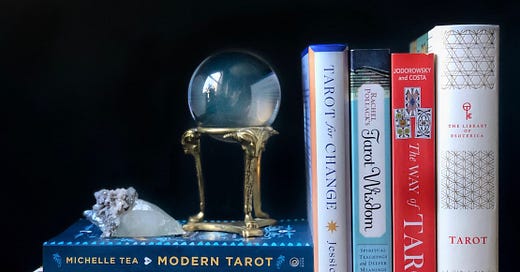


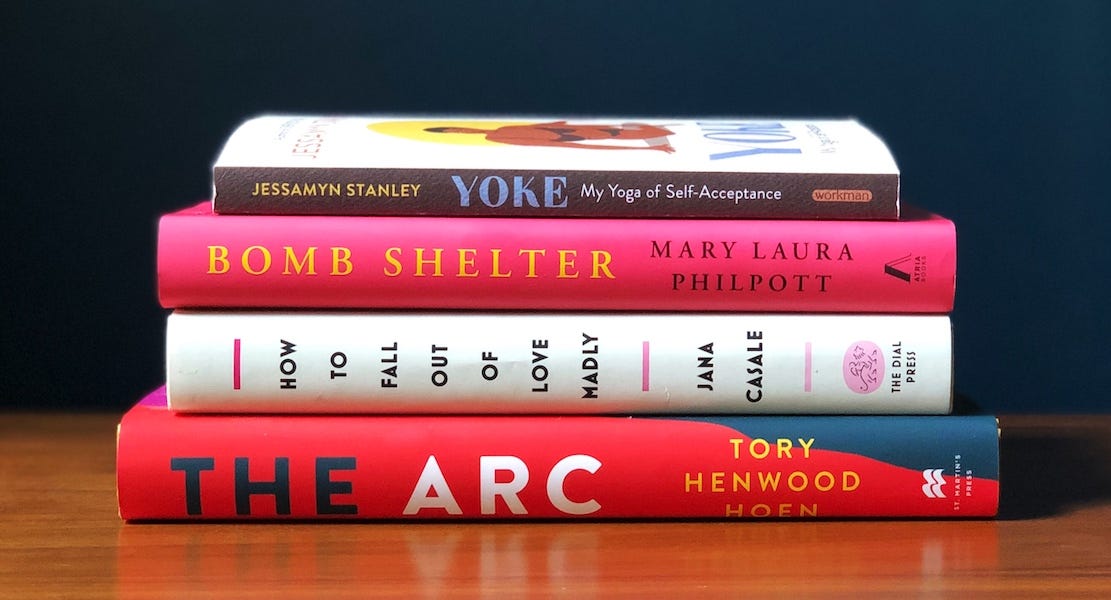
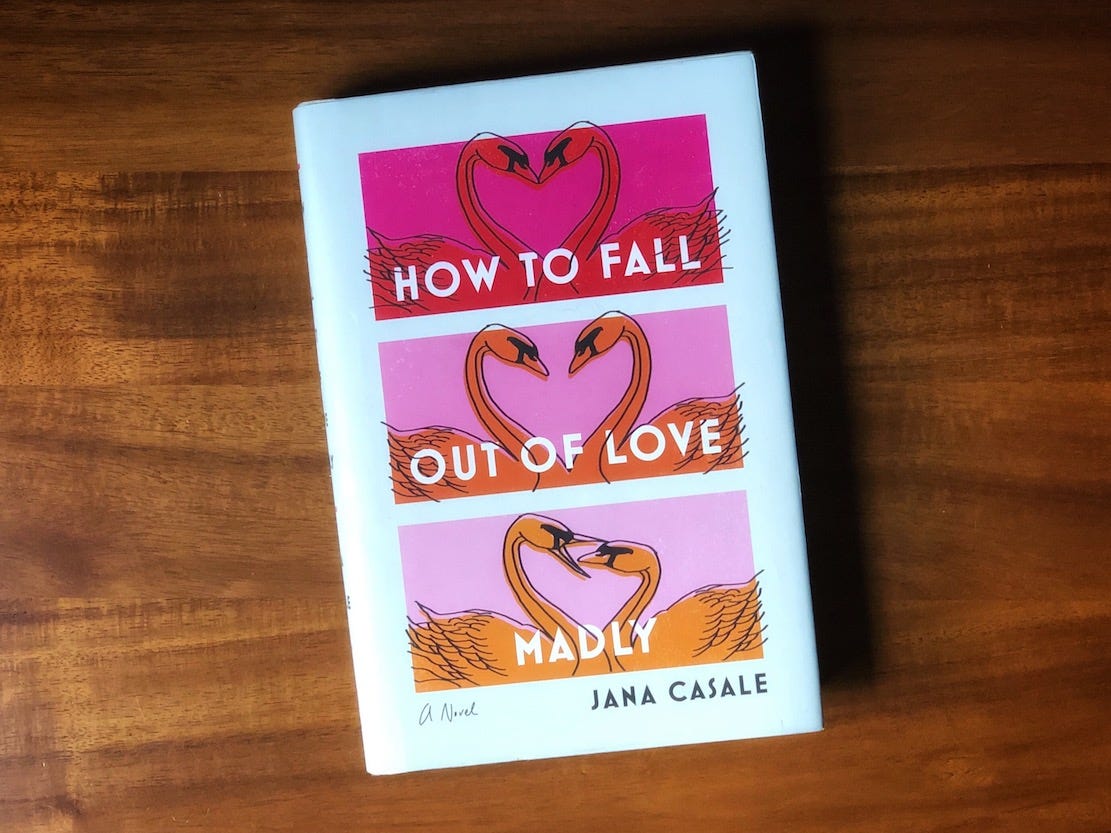
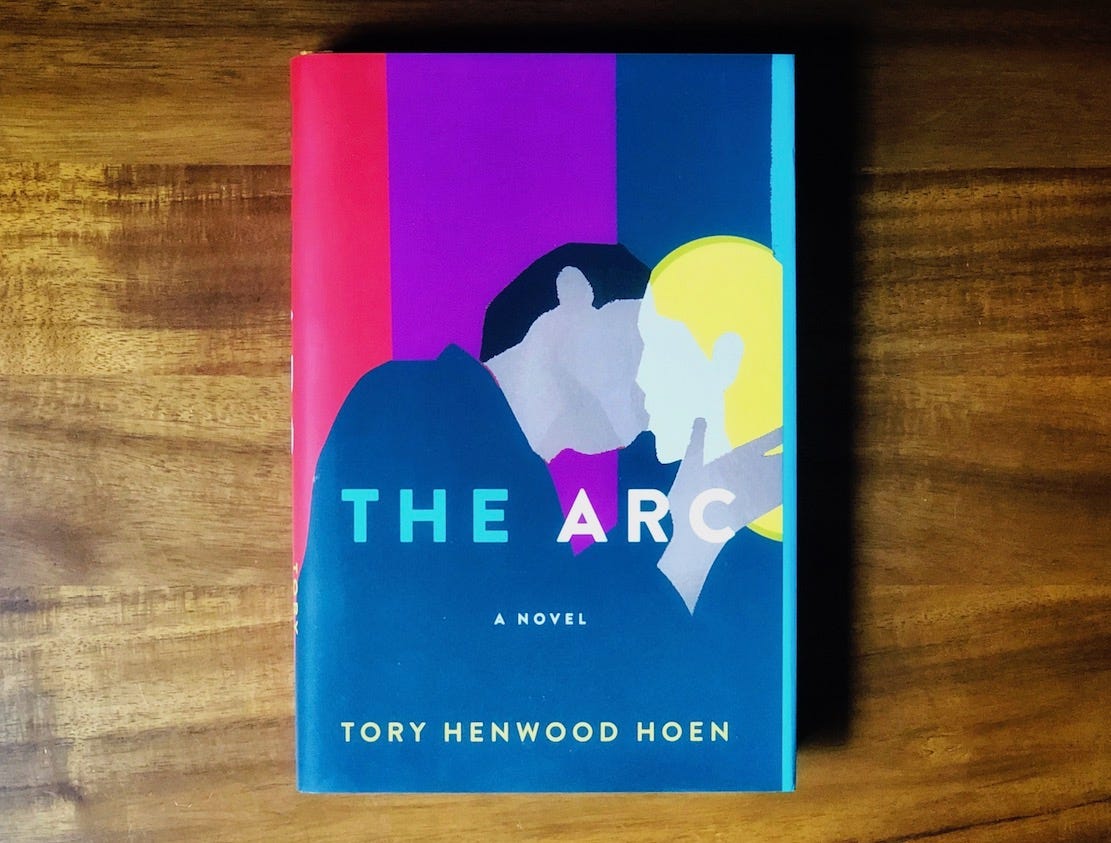
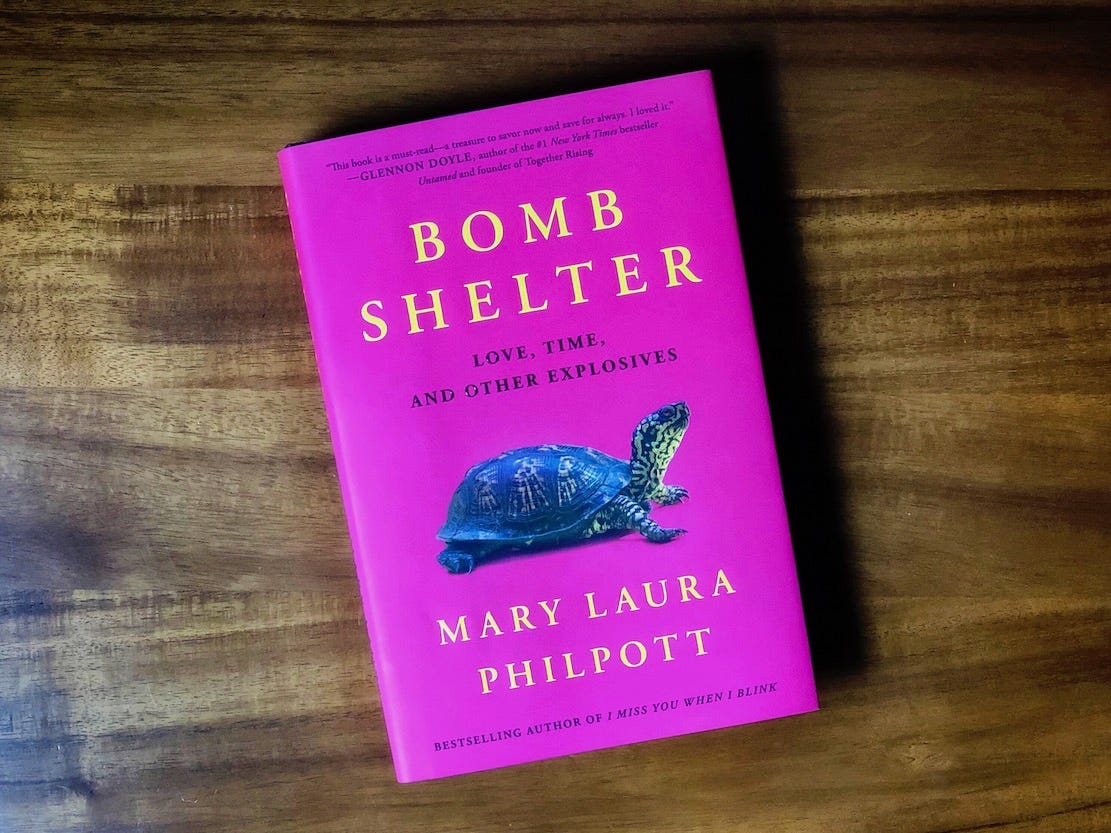
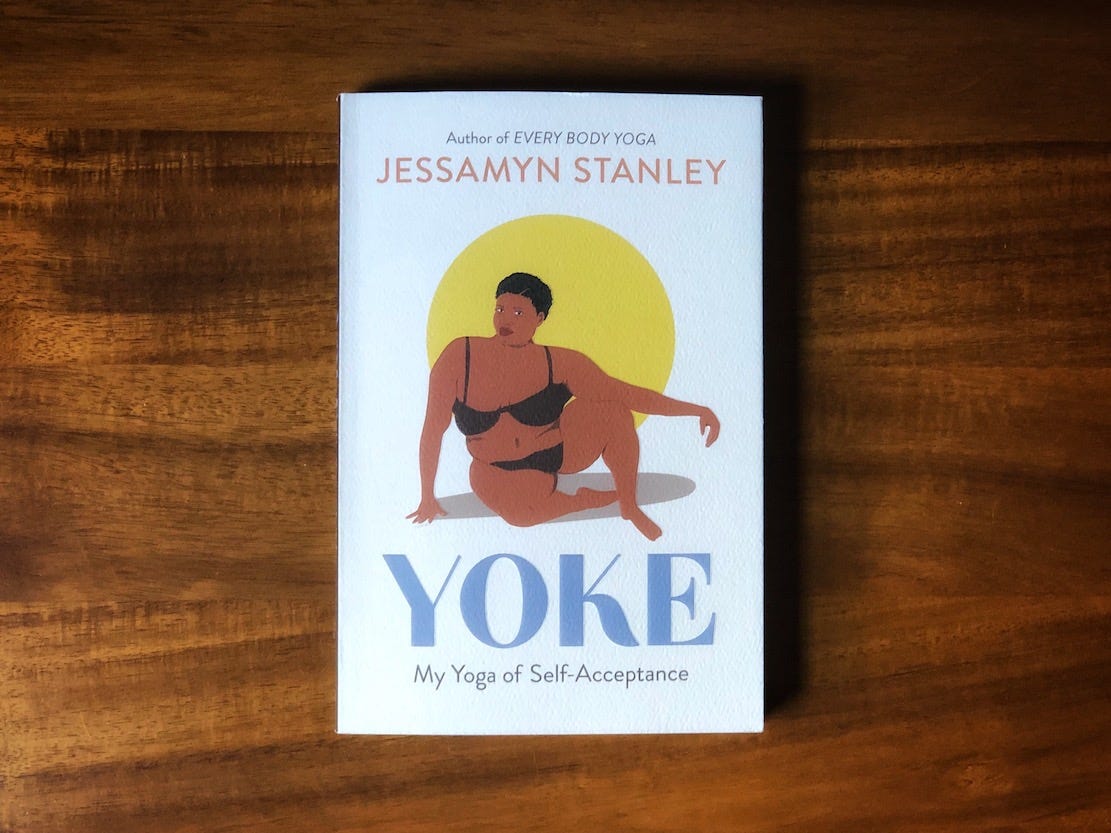
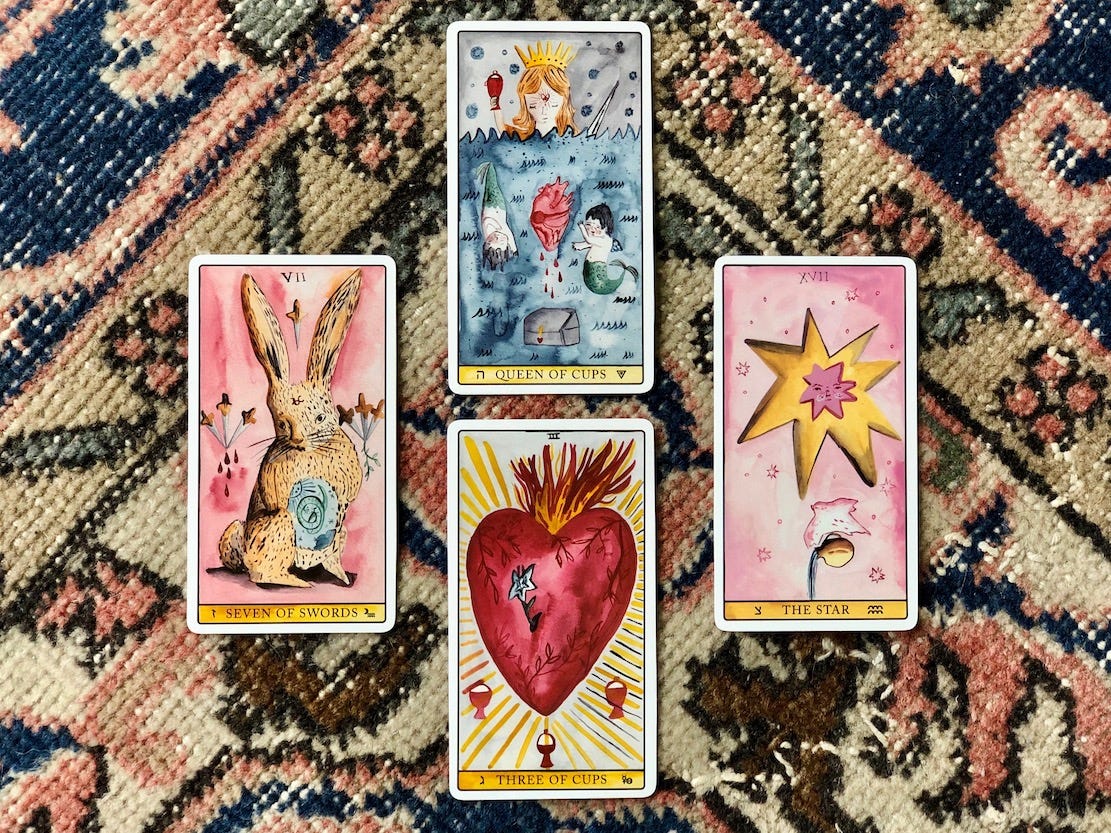

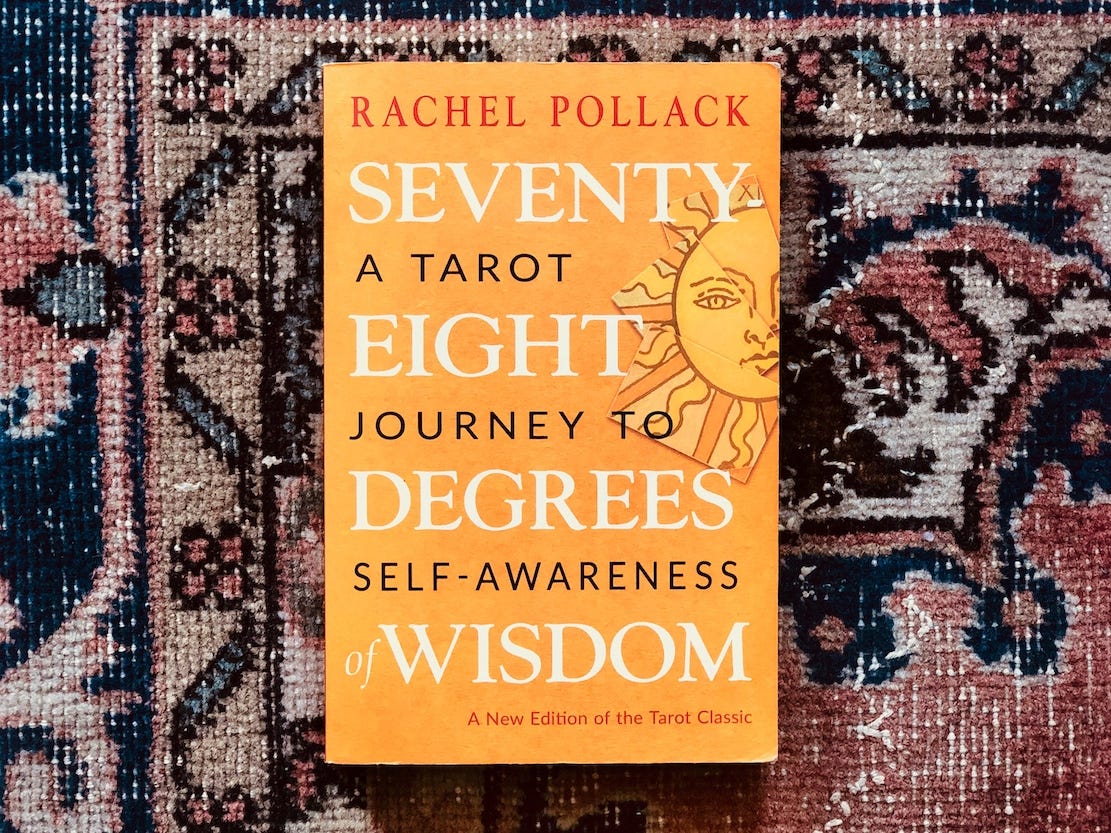
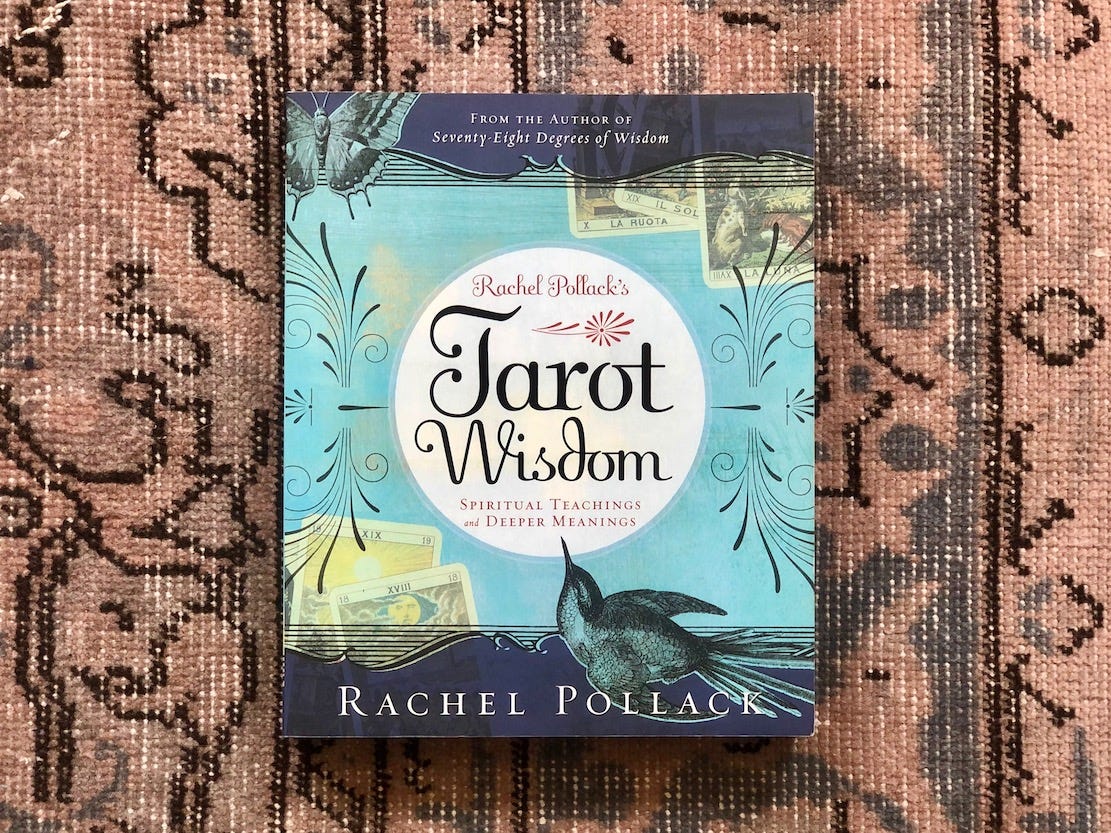
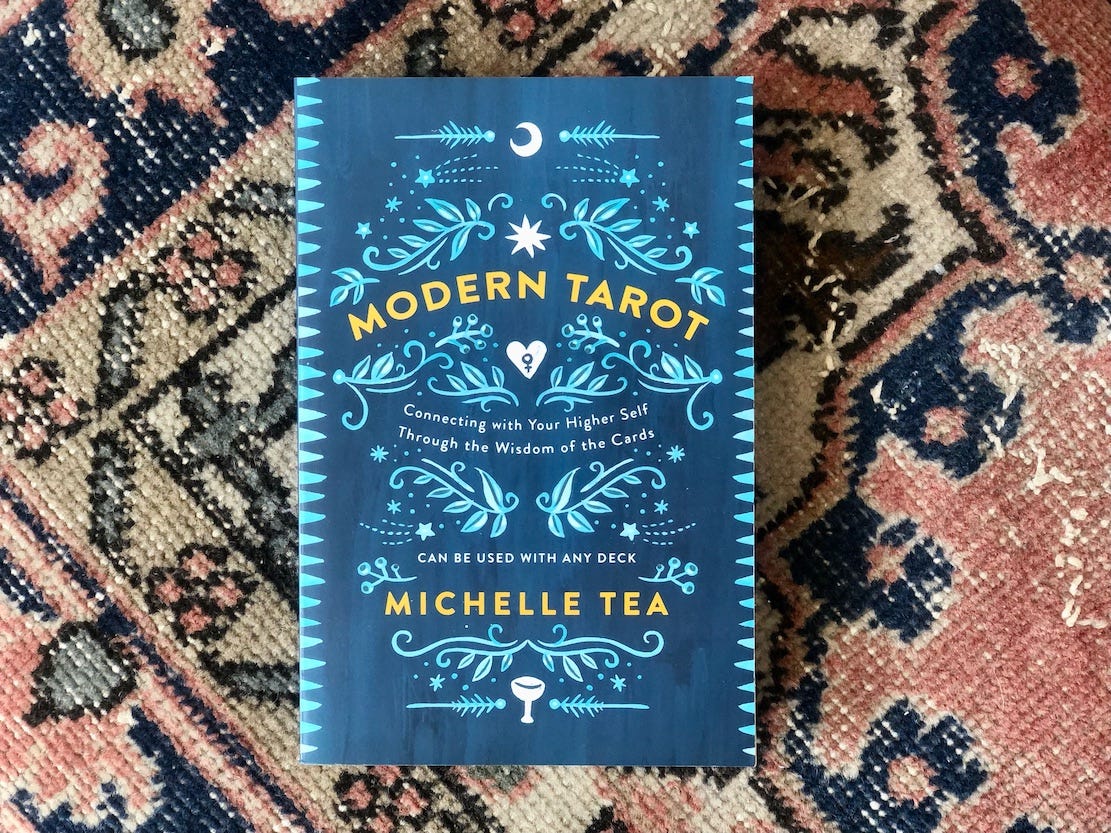
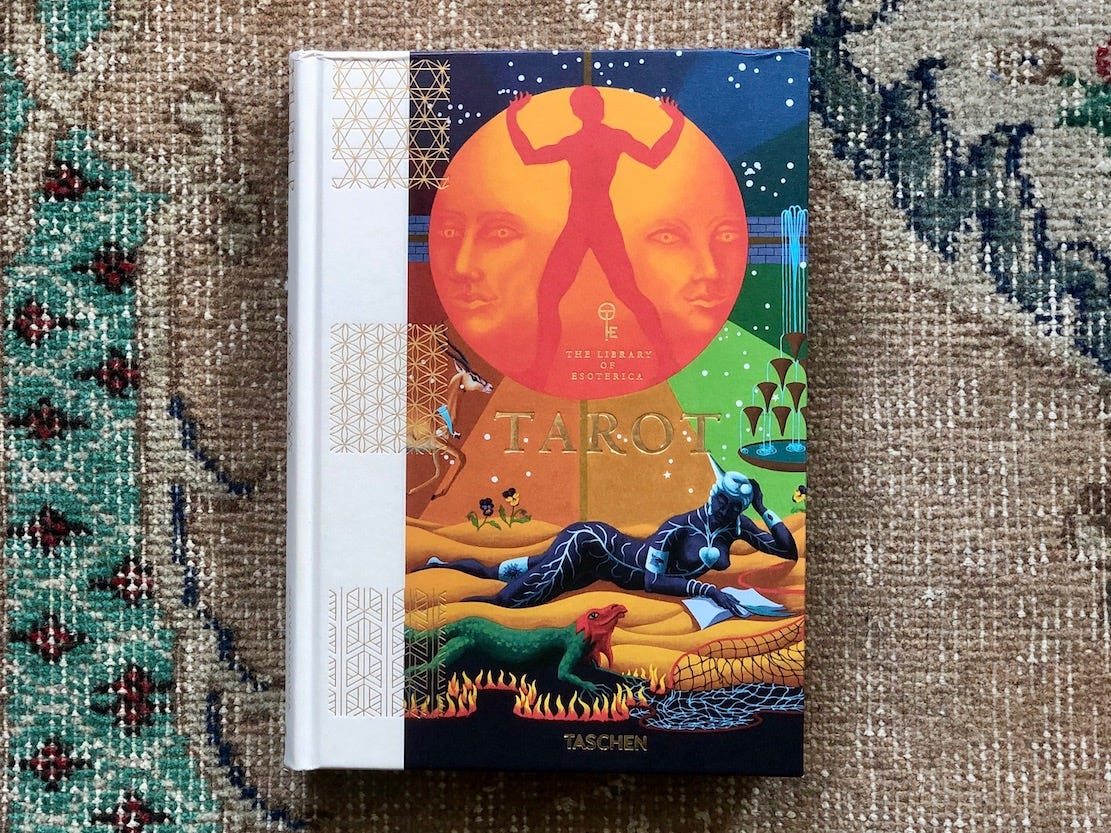
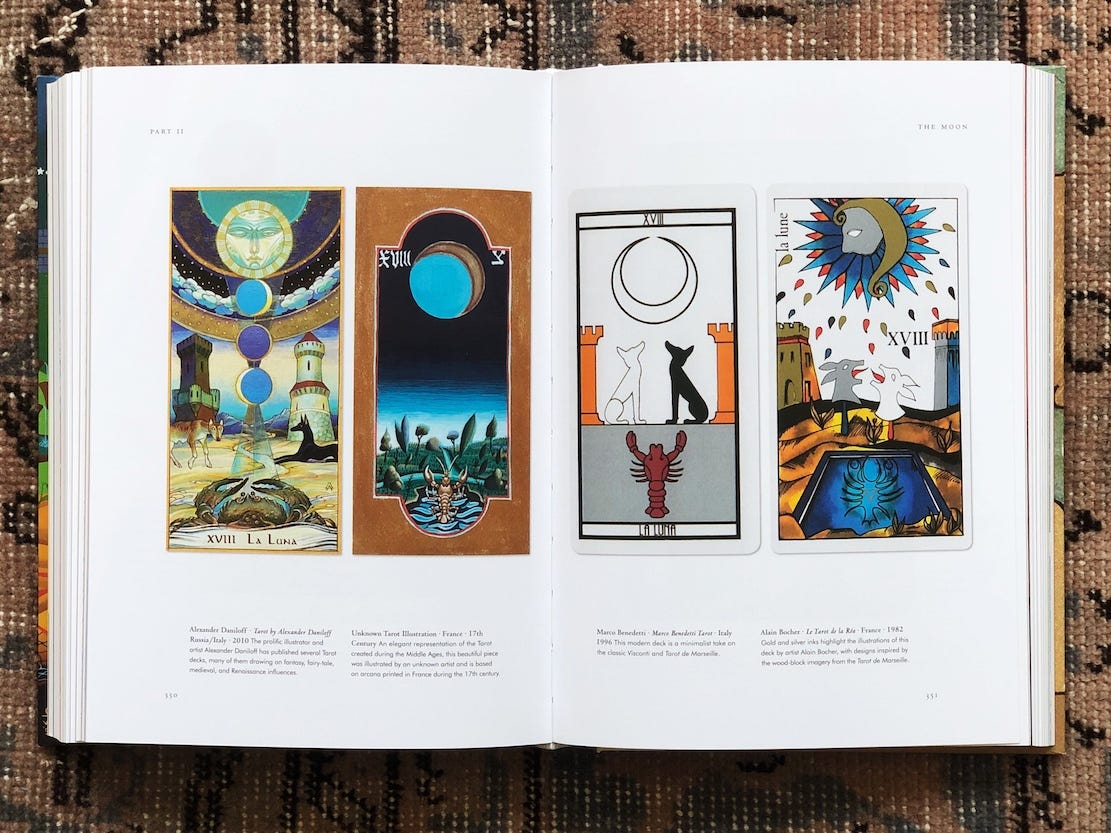
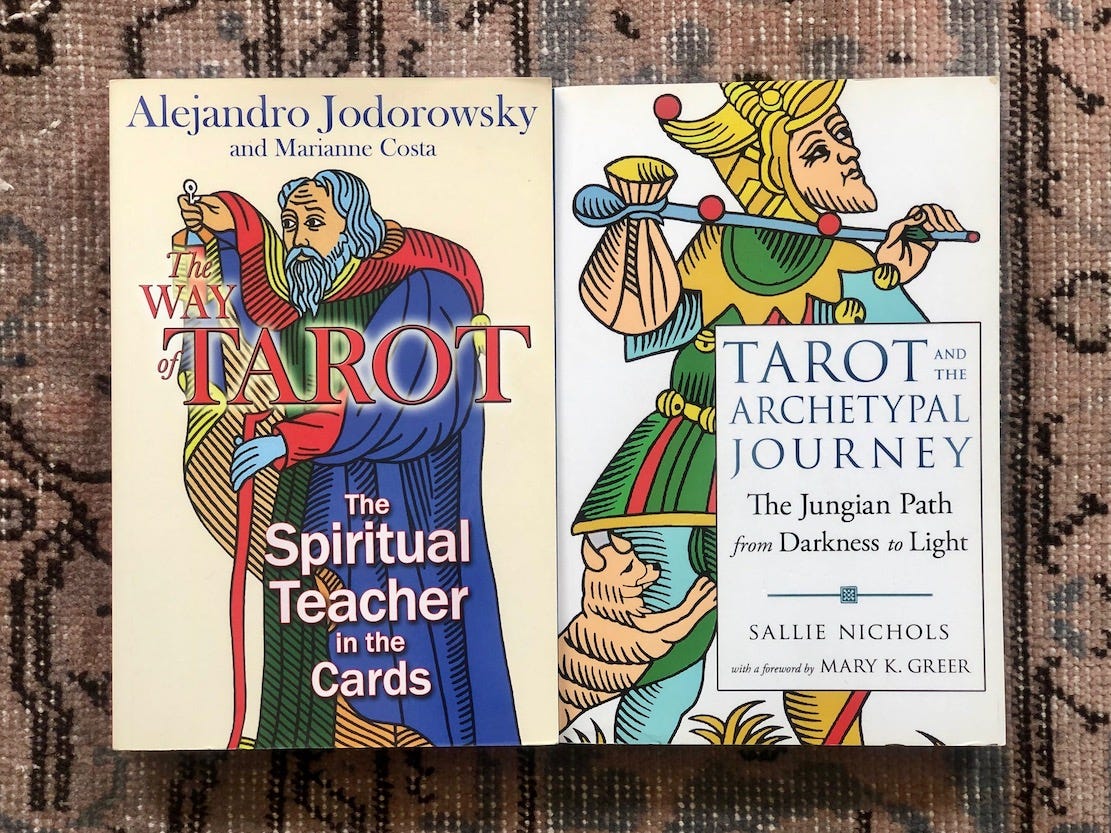
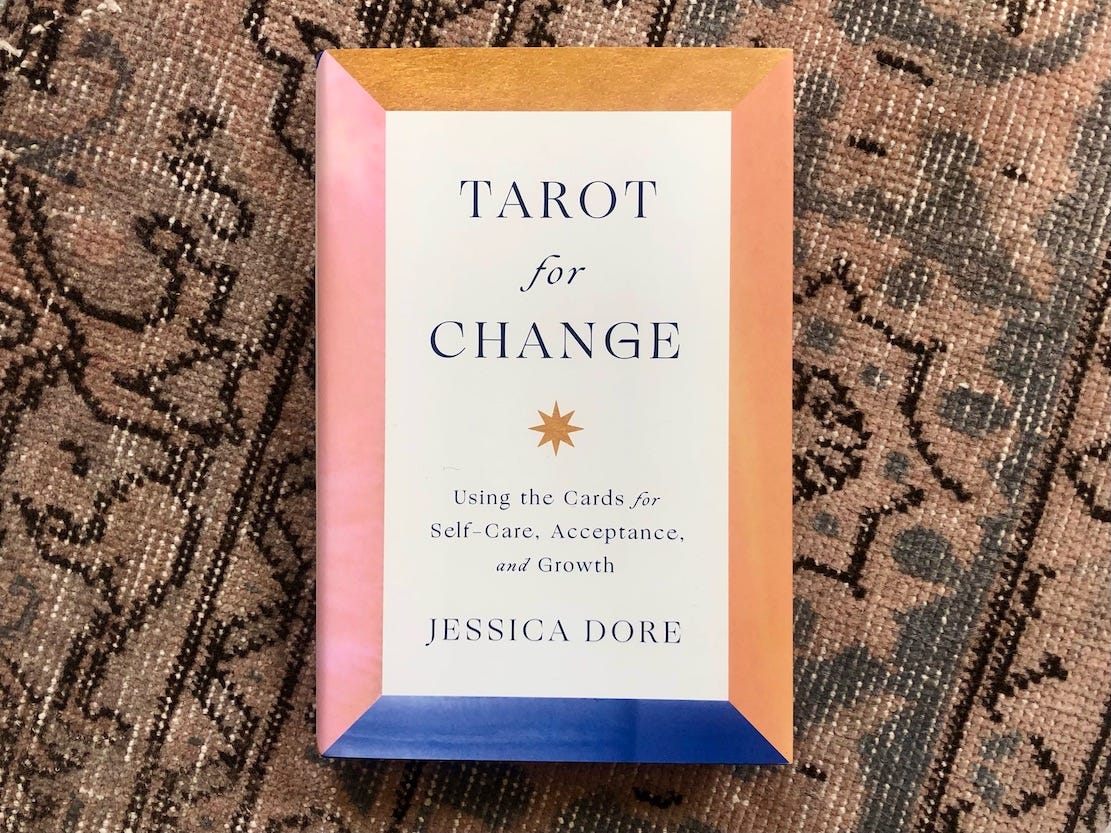

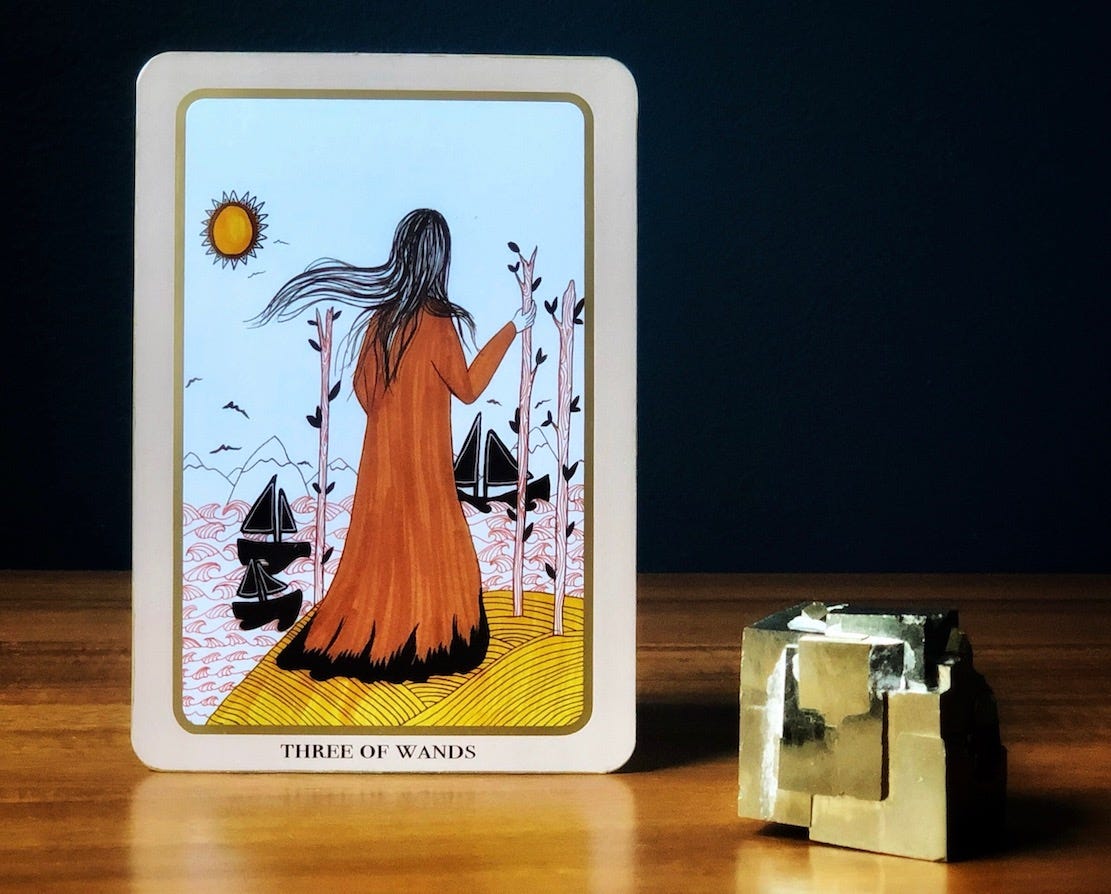

Thank you, I look forward to your newsletter every week.
Thank you thank you! Added some of these books to my library holds!